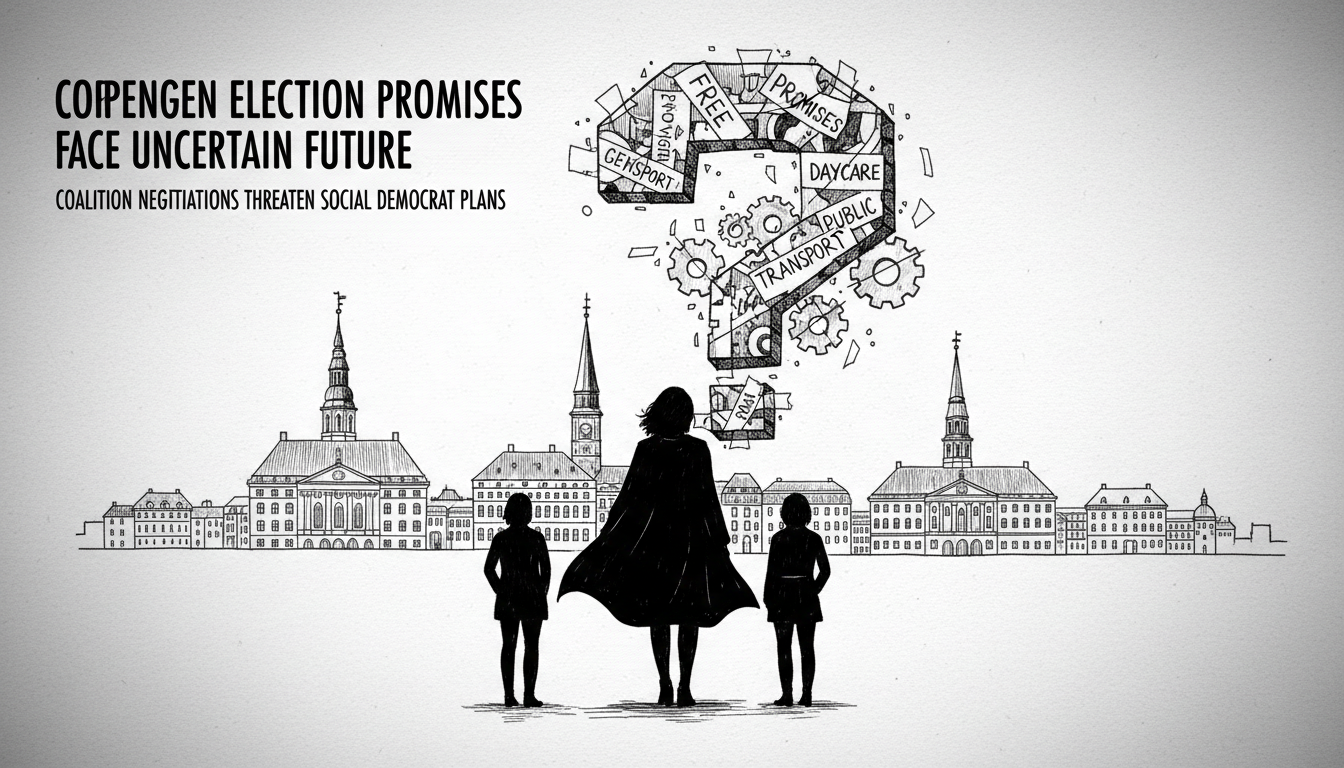Pernille Rosenkrantz-Theil's ambitious campaign dominated Copenhagen's local elections with bold social promises. The Social Democrat frontrunner pledged free daycare institutions, more parking spaces, reduced new construction, and free public transport for certain residents. These proposals captured significant voter attention throughout the campaign season. Now questions emerge about whether her party colleagues at City Hall will actually fight for these initiatives.
The uncertainty surrounding these election promises reveals deeper tensions within Copenhagen's political landscape. Municipal governments in Denmark hold substantial power over local social services and integration policies. This makes election promises particularly meaningful for Copenhagen's diverse communities. The city's approach to Danish welfare system implementation directly affects daily life for both long-term residents and newcomers.
Copenhagen integration efforts often depend on municipal budget allocations and political priorities. Rosenkrantz-Theil's proposals represented a substantial shift in Denmark social policy at the local level. Free public transport for specific groups could dramatically impact mobility for low-income families and elderly residents. Similarly, free daycare institutions would represent a major expansion of Denmark's famous welfare system.
Local political observers note that campaign promises frequently face reality checks after elections. The municipal coalition-building process often requires compromise and modification of initial proposals. This dynamic appears particularly relevant in Copenhagen's case, where multiple parties typically must collaborate to form governing majorities.
The discussion around these unfulfilled promises highlights broader challenges in Danish society news. Voters consistently express frustration when election platforms fail to materialize into concrete policies. This pattern affects public trust in political institutions and can influence future voter turnout.
Community centers across Copenhagen's neighborhoods closely monitor these political developments. Many social service providers had anticipated potential budget increases if Rosenkrantz-Theil's proposals moved forward. Now organizations serving immigrant communities and vulnerable populations await clarity about future funding and support.
Danish immigration policy often intersects with municipal service provision in cities like Copenhagen. The proposed policies could have significantly affected integration outcomes for newcomers. Research consistently shows that access to affordable childcare and transportation directly impacts employment opportunities and social inclusion.
The coming weeks will reveal whether these campaign promises become governing priorities or fade into political history. City council negotiations will determine the actual policy direction for Denmark's capital city. The outcome will signal much about the future of social democracy in urban governance and the practical implementation of Denmark's welfare system.

